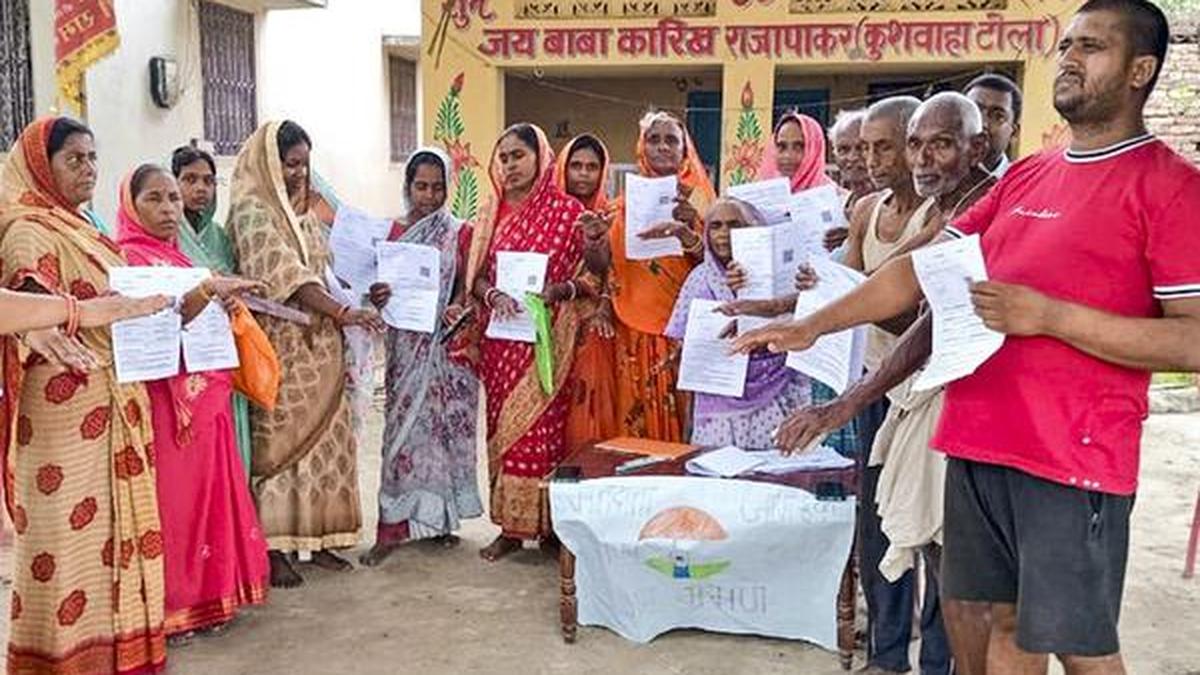Now Reading: Explained: Electoral Roll Revision in Bihar and NRC Concerns
-
01
Explained: Electoral Roll Revision in Bihar and NRC Concerns
Explained: Electoral Roll Revision in Bihar and NRC Concerns

Quick Summary
- Special Intensive Revision (SIR) Overview: The Election Commission of India (ECI) has initiated a Special Intensive Revision (SIR) of Bihar’s electoral rolls ahead of the state elections. Draft rolls will be released on August 1, and final ones published by September 30.
- Objective: To ensure eligible voters are included while removing ineligible names.Physical verification, claims processing, and constituency restructuring are part of the process.
- Concerns Raised:
– Opposition leaders like Manoj Jha and Abhishek Singhvi expressed fears over voter disenfranchisement due to inadequate time for revising rolls.- Bihar-based Jan Suraaj Party questioned the choice of proof documents required for enrollment,citing challenges faced by marginalized groups due to low birth registration rates.
– Critique regarding exclusion-prone requirements like birth certificates for eligibility rather of accessible IDs like Aadhaar or MNREGA cards.
- Assurances from ECI:
– Voters listed in the 2003 electoral roll need minimal documentation; others face stricter requirements but exemptions can be made based on local investigations by officers.
- Historical Context: Previous SIRs were conducted years before elections; this instance raises concerns due to timing just months before polls amid challenging logistical conditions like floods and mass migration.
Indian Opinion Analysis
the ongoing Special Intensive Revision exercise highlights critical challenges tied to India’s democratic processes. While ensuring clean electoral rolls is essential for fair elections,its execution demands precision and inclusivity-a delicate balance currently under scrutiny in Bihar.
Concerns around timing and logistical difficulties warrant deeper reflection given ongoing issues such as flooding, migration patterns among laborers, and bureaucratic hurdles posed by demanding proof requirements. Marginalized communities risk further alienation if common identification means remain excluded.
ECI’s assurance regarding exemptions indicates flexibility but leaves room for subjective decisions at local levels-a factor historically susceptible to biases in implementation. Timing close to elections also raises questions about whether sufficient dialog with stakeholders occurred earlier.
On broader implications: critics have drawn connections between this move and fears over potential backdoor implementation of NRC-like policies-not explicitly stated but perceived through restrictive proof-document demands targeting socio-economically weaker sections. Nonetheless,clarity on procedural fairness will be crucial amidst polarized opinions ahead of Bihar’s state polls.


























